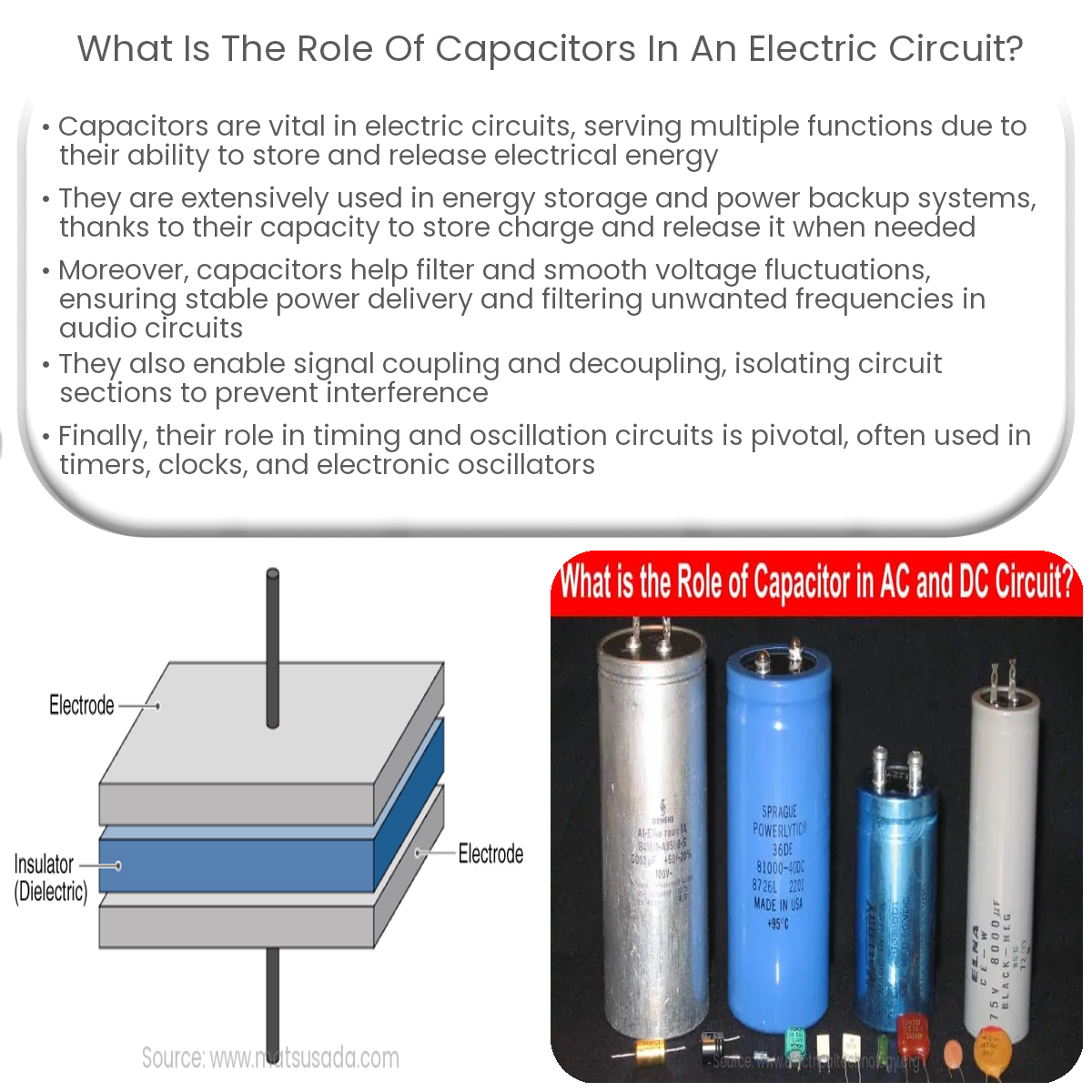Capacitors store electrical energy, filter voltage fluctuations, couple and decouple signals, and are crucial in timing and oscillation circuits.
Role of Capacitors in Electric Circuits
Capacitors are essential components in electric circuits, offering a variety of functions. Their primary role is to store electrical energy by accumulating electric charge when a voltage is applied across their terminals. Capacitors can be found in many electrical and electronic devices due to their versatile nature. In this article, we will explore the key functions capacitors play in electric circuits.
Energy Storage
Capacitors have the ability to store energy in the form of an electric field between two conductive plates separated by an insulating material called a dielectric. When a voltage is applied across a capacitor, it stores charge until it reaches its maximum capacity, and releases the stored energy when the voltage across the capacitor drops or is removed. This property makes capacitors useful in applications like energy storage and power backup systems.
Filtering and Smoothing
Capacitors are often used to filter and smooth out voltage fluctuations in power supplies, as they can absorb rapid voltage changes and release energy when needed. This helps stabilize the voltage levels in a circuit and ensures consistent power delivery to other components. In audio circuits, capacitors can also be used to remove unwanted frequencies, allowing only specific frequency ranges to pass through.
Signal Coupling and Decoupling
Capacitors can be utilized for signal coupling, allowing AC signals to pass through while blocking DC signals. This is particularly useful in audio and communication circuits where it is crucial to separate the signal from the DC bias voltage. Additionally, capacitors can be employed for decoupling, which involves isolating different sections of a circuit to prevent interference and maintain stable operation.
Timing and Oscillation
Capacitors play a vital role in timing and oscillation circuits, as their ability to charge and discharge over time can be utilized to create specific time delays or generate oscillating signals. This makes them crucial components in applications such as timers, clocks, and oscillators in electronic devices.
Conclusion
In summary, capacitors play an essential role in electric circuits, serving various functions like energy storage, filtering, signal coupling and decoupling, and timing. Their versatile nature makes them indispensable components in a wide range of electrical and electronic devices, ensuring stable and efficient operation.


